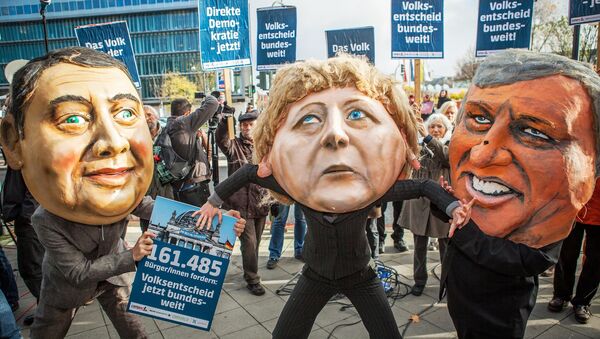Alexander Dobrindt, Merkel’s Federal Minister of Transport and Digital Infrastructure and former executive secretary of the CSU, has told German newspaper 'Passauer Neuen Presse' that Merkel's CDU/CSU coalition is "in a serious" situation and "the splits have never been as bad as they are now" as further cracks grow in Merkel's government.
Severe differences have grown since the crisis began, with the SPD initially opposing Merkel’s plan to build refugee centers throughout Germany, which many social democrats said was akin to building concentrations camps.
The CSU – led by Horst Seehofer, minister-president of Bavaria and chairman of the CSU – has been enormously critical of Merkel for failing to control the migrant crisis. He has repeatedly called for a cap on the number of migrants accepted by Germany, which Merkel has refused to do.
Election Slump
The CDU lost support in three regional elections this week, giving ground to the right-wing Alternative for Germany (AfD) Party and the Greens.
So geht Landtagswahl! #löwenstark pic.twitter.com/NLljsfov8Z
— CSU (@CSU) 17 March 2016
(Tweet: "The state election")
The AfD – which was on the point of collapse but has won strong support over its right-wing populist and Euroskeptic stance — made decisive gains in the state elections. The party won 12.5 percent in the state of Rhineland-Palatinate, 15 percent in Baden-Württemberg, and 24 percent in Saxony-Anhalt.
"Double-digit election results for AfD would have been unthinkable until recently. A serious situation has occurred between the CDU and CSU. The splits have never been as bad as they are now," Dobrindt said.
The CDU/CSU Union has been a feature of German politics for decades, with the CSU operating only in Bavaria and the CDU in the rest of Germany. Merkel’s unpopularity could yet see the CSU wishing to distance itself from Merkel – and possibly even campaign for political power outside of Bavaria in next year’s federal elections.




